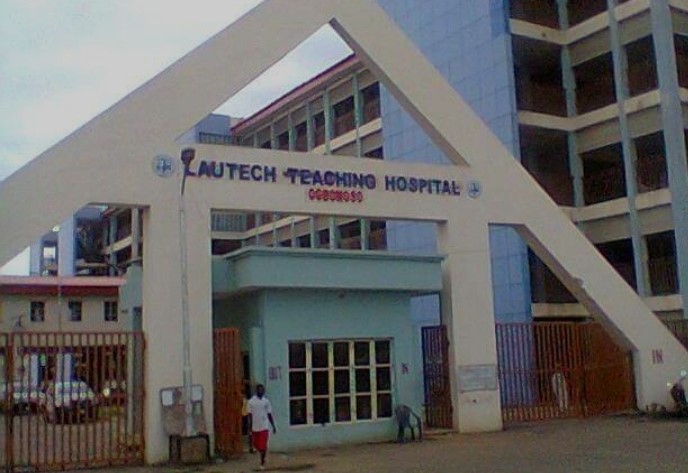Health
C’River, FG partner to reduce maternal, newborn mortality rate

From Ene Asuquo, Calabar
The Cross River State Government, in collaboration with the Federal Ministry of Health and development, FMOL, partners to officially launch the Maternal and Neonatal Mortality Reduction Innovation Initiative (MAMII), a strategic programme aimed at reducing maternal and newborn deaths across the state.
The initiative which aims to reduce maternal deaths by 30 percent in 2028, is part of the Federal Government’s Renewed Hope Agenda under the leadership of the Coordinating Minister of Health, Prof. Muhammad Ali Pate. It targets 172 local government areas across Nigeria that contribute to over 50 percent of the nation’s maternal mortality burden.

In his welcome address, Jonah Offor, Permanent Secretary, Cross River State Ministry of Health, who represented the Commissioner for Health, Henry Ayuk, emphasized that weak health systems remain the primary drivers of maternal and newborn deaths in the state.
“The main causes of maternal deaths in our state are obstructed labor, hemorrhage, hypertension, and unsafe abortions. For newborn deaths, pneumonia, atresia, and congenital abnormalities are the leading causes. If you look at it critically, the root cause is simple, our weak health systems,” Offor stated.
He announced the state government’s commitment to addressing these challenges through improved health infrastructure, adequate deployment of human resources, and the activation of an efficient ambulance referral system to reduce waiting times for emergency obstetric care.
“We have a very dynamic, proactive, and listening government that is ready to come to the aid of our health sector. Already, our health infrastructure is improving, and we have engaged more human resources for health to man these facilities,” the Permanent Secretary assured.
He concluded by calling on participants to take the workshop seriously, emphasizing that the state expects a “workable document” by the end of the five-day session to guide the implementation of maternal mortality reduction strategies in Cross River State.
Iniofon Inyang, representing the national MAMII team lead, Dayo Adeyanju, outlined the structure of the five-day workshop, which includes a critical field assessment in Abi Local Government Area—identified as the LGA with the highest contribution to maternal and newborn mortality in the state.
“On day two, we are moving to Abi LGA with every participant to identify challenges leading to maternal and neonatal deaths. Why are women not going to health facilities? Why are they delivering at home? What are the specific challenges in Cross River that have led to women dying while giving birth?” Dr. Inyang explained.
The workshop will culminate in a co-creation session where state participants, federal representatives, and development partners will design state-specific interventions to address identified challenges.
Inyang noted that the initiative targets a 30 percent reduction in maternal and neonatal deaths and a 60 percent increase in healthcare service utilization by 2028, while also strengthening emergency transport systems through the National Emergency Medical Services and Ambulance System (NEMSAS).
Also speaking at the activation workshop, Vivien Otu, Director-General, Cross River State Primary Health Care Development Agency, highlighted the far-reaching implications of maternal deaths beyond mere statistics.
“When a mother dies, it’s not just that a woman is gone, it has severe implications. The husband becomes a widower, the children become motherless, and there are significant limitations on socio-economic development,” Otu noted.
She stressed that many maternal deaths are preventable, often resulting from postpartum hemorrhage, hypertensive disorders, sepsis, healthcare system failures, and the lack of skilled birth attendants.
C’River , FG partner to reduce maternal, newborn mortality rate
From Ene Asuquo, Calabar
The Cross River State Government, in collaboration with the Federal Ministry of Health and development, FMOL, partners to officially launch the Maternal and Neonatal Mortality Reduction Innovation Initiative (MAMII), a strategic programme aimed at reducing maternal and newborn deaths across the state.
The initiative which aims to reduce maternal deaths by 30 percent in 2028, is part of the Federal Government’s Renewed Hope Agenda under the leadership of the Coordinating Minister of Health, Prof. Muhammad Ali Pate. It targets 172 local government areas across Nigeria that contribute to over 50 percent of the nation’s maternal mortality burden.
In his welcome address, Jonah Offor, Permanent Secretary, Cross River State Ministry of Health, who represented the Commissioner for Health, Henry Ayuk, emphasized that weak health systems remain the primary drivers of maternal and newborn deaths in the state.
“The main causes of maternal deaths in our state are obstructed labor, hemorrhage, hypertension, and unsafe abortions. For newborn deaths, pneumonia, atresia, and congenital abnormalities are the leading causes. If you look at it critically, the root cause is simple, our weak health systems,” Offor stated.
He announced the state government’s commitment to addressing these challenges through improved health infrastructure, adequate deployment of human resources, and the activation of an efficient ambulance referral system to reduce waiting times for emergency obstetric care.
“We have a very dynamic, proactive, and listening government that is ready to come to the aid of our health sector. Already, our health infrastructure is improving, and we have engaged more human resources for health to man these facilities,” the Permanent Secretary assured.
He concluded by calling on participants to take the workshop seriously, emphasizing that the state expects a “workable document” by the end of the five-day session to guide the implementation of maternal mortality reduction strategies in Cross River State.
Iniofon Inyang, representing the national MAMII team lead, Dayo Adeyanju, outlined the structure of the five-day workshop, which includes a critical field assessment in Abi Local Government Area—identified as the LGA with the highest contribution to maternal and newborn mortality in the state.
“On day two, we are moving to Abi LGA with every participant to identify challenges leading to maternal and neonatal deaths. Why are women not going to health facilities? Why are they delivering at home? What are the specific challenges in Cross River that have led to women dying while giving birth?” Dr. Inyang explained.
The workshop will culminate in a co-creation session where state participants, federal representatives, and development partners will design state-specific interventions to address identified challenges.
Inyang noted that the initiative targets a 30 percent reduction in maternal and neonatal deaths and a 60 percent increase in healthcare service utilization by 2028, while also strengthening emergency transport systems through the National Emergency Medical Services and Ambulance System (NEMSAS).
Also speaking at the activation workshop, Vivien Otu, Director-General, Cross River State Primary Health Care Development Agency, highlighted the far-reaching implications of maternal deaths beyond mere statistics.
“When a mother dies, it’s not just that a woman is gone, it has severe implications. The husband becomes a widower, the children become motherless, and there are significant limitations on socio-economic development,” Otu noted.
She stressed that many maternal deaths are preventable, often resulting from postpartum hemorrhage, hypertensive disorders, sepsis, healthcare system failures, and the lack of skilled birth attendants.
“This crisis requires immediate and locally adapted strategies to improve healthcare access and quality, and to address the socio-cultural factors causing maternal and newborn mortality which is exactly what MAMII seeks to address,” she added.
“This crisis requires immediate and locally adapted strategies to improve healthcare access and quality, and to address the socio-cultural factors causing maternal and newborn mortality which is exactly what MAMII seeks to address,” she added.














